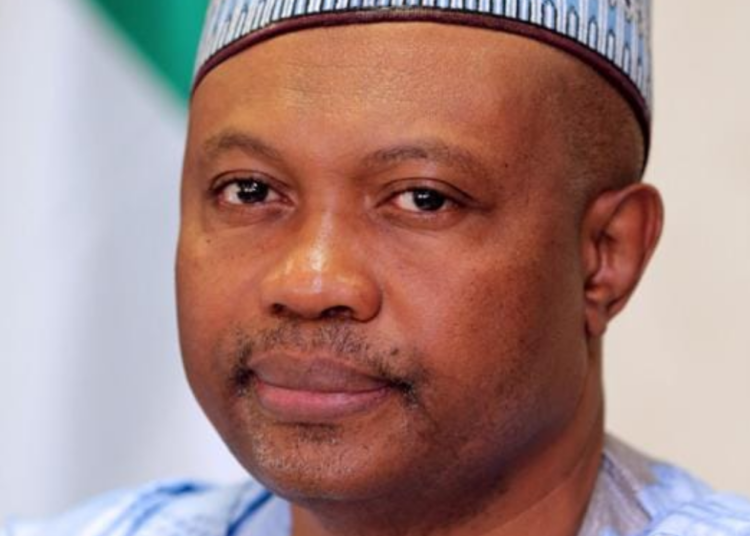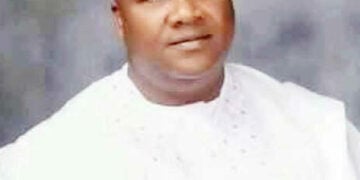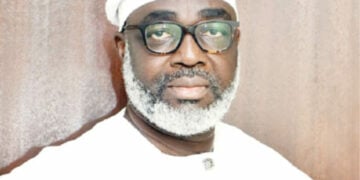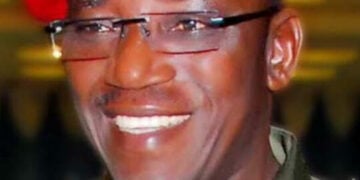It is now over two months since you assumed duty as the fourth executive chairman of NAHCON, how has it been?
With all sense of modesty, I would say it has been eventful, slightly challenging in the sense that I found myself in a new terrain, though not totally strange but if you were not born into a system, you will agree with me that it will appear to be strange. But with what I met on the ground in terms of colleagues and co-workers, it has been quite fulfilling and we are doing well but we wish to be doing better.
What is the level of preparation for 2024 Hajj?
You recall that I only assumed here on October 18 and by the time we came, my predecessor and of course the colleagues I met on ground had already kick-started the preparation for the 2024 hajj. So, all I needed to do was to jump in and see how I can tag along and if there are areas that didn’t meet my humble expectations based on what I came with, is to see how I can lure my partners that I met on ground to tag along with me in realising my objectives. That is what we did and I think that is what we are still doing.
Every Hajj has its own challenges and that is the beauty of pilgrimage. Hajj morally is a revolving ritual that happens every year and with 95 percent participants being new faces. So, there you are having the challenges of getting 95 percent people to key into the previous percentage and everybody is unique. But we are getting there gradually in the same boat with other stakeholders which are mainly the states, agencies of government and of course the tour operators.
The NAHCON act is supervisory, which gives us the mandate to ensure we
and make sure that anything on Hajj is scrutinised so that at least there is uniformity, concession and collaboration in approach. Looking in that direction, I want to believe that we seem to be doing well, but slow and steady. Slow and steady in the sense that it involves other stakeholders that are not necessary within our domain, and you must appreciate the fact that sometimes it can be a little bit meandering. But all said and done, I think we can be said to have attained some level of 50 to 60 percent satisfaction rate.
We intend to embark on the first major steps of the 2024 hajj exercise in two weeks’ time, the signing of MoU with the Mutawiffs, Saudi companies that provide range of services – transportation between point of entry and the holy sites, accommodations, feeding and other services required by the pilgrims.
The committee set up to screen them has scrutinised their applications vis-à-vis their capacity and requisite experience to provide the best service to our pilgrims. Nigerians have learnt a lesson from what transpired in 2023 and will definitely insist on the best. The pilgrims are the kings and queens, while we are the servants and as servants, we must ensure that we give the kings and queens royal treatments.
Nigerians are lamenting over 50 percent hike in hajj fare from N2.9 million in 2023 to N4.5 million charge per seat for 2024, what is your take on this?
If it was a wish, we would love to carry out Hajj using our currency, but unfortunately, we find ourselves belonging to the world as a global village, and then we can’t isolate ourselves from the effect or impact of the global economy.
Yes, in the past starting from post COVID 2022, Hajj fare was about N2m and in 2023 it went to almost N3m. One interesting fact that needs to be stated here is that Hajj is dollar denominated and it might interest you to know that even if there are going to be changes, it will be slightly different from what was paid last year from what we expect pilgrims to pay this year.
Recall that the cost of the 2023 Hajj in Dollars was $6,644 and the exchange rate was N456 to a Dollar. Today, the same $6,644 and if you convert it to what we have now as an exchange rate, your guess is as good as mind. This is what makes the hike predictable and inflation is everywhere in the world.
I’m not dismissing the fact there are difficulties but I call on our brothers and sisters, especially the intending pilgrims to appreciate the fact that Allah is the creator and He keeps changing the times and each time comes with its challenge. Therefore, we should embrace this as part of changes that we must encounter in 2024.
What are the levels of compliance in terms of payments of the fare so far?
If you notice, we have embarked on an enlightenment campaign urgingthose that are favoured by Allah to be His guests to make sure they pay early as announced.
For the first time, apart from the deliberate policy we have adopted of vigorous campaign and enlightenment on Hajj to be within time, there is a change of policy from the Saudi government.
You know, it is in our DNA to always do things at the last minute but oftentimes we don’t get it wrong. Allah has been so kind to us but it has its own flimsy sides which are negative. For the first time we were reminded that there are specific timelines that we must follow and abide by.
In the new timelines released by the Saudi’s authority, they said 50 days to the Arafat there would be no issuing of visa to anybody. Apart
from that, they came with another system that for you to even get to the state of processing visa, there are certain things you must have
done on the portal, in other words, each of your pilgrims must be identified to have paid, had his or her passport uploaded on the
portal, accommodation and feeding identified and paid for. It is then and only then that you are eligible for a visa.
For all these systems to work and then considering the timelines, we are left with no option than to insist and be reminding the people that time is of essence. Sometimes, we even go physiologically that Hajj is a call by Allah. If He calls you, you will go, and if He delays yours going, it doesn’t mean that you should give up but the time will come that you’ll go.
What about the issue of congestion and poor hygiene in Muna?
Historically, the space where you have tents in Muna was conceived and
created for only 950, 000 people globally. That was why until recently
there was never any permanent structure there, it was all tents. But
of course, as we progress there have been developments and they are
now well fitted, air-conditioned, rugs and so on.
So, not only it has become a challenge to any nation such as ours that
planned for something less but ended up with much more. What do I mean
by that, the 2023 plan was to have 65,000 pilgrims from Nigeria but we
had 95,000. Then, think about Pakistan, Indonesia, Bangladesh,
Malaysia, Turkey, Egypt and other Muslim and non-Muslim countries that
take pilgrims to the Holy Land. A place that was conceived and meant
for 950, 000 people and here you are calling millions. So, it doesn’t
take rocket science for you to know that there would be overcrowding
and confusion.





